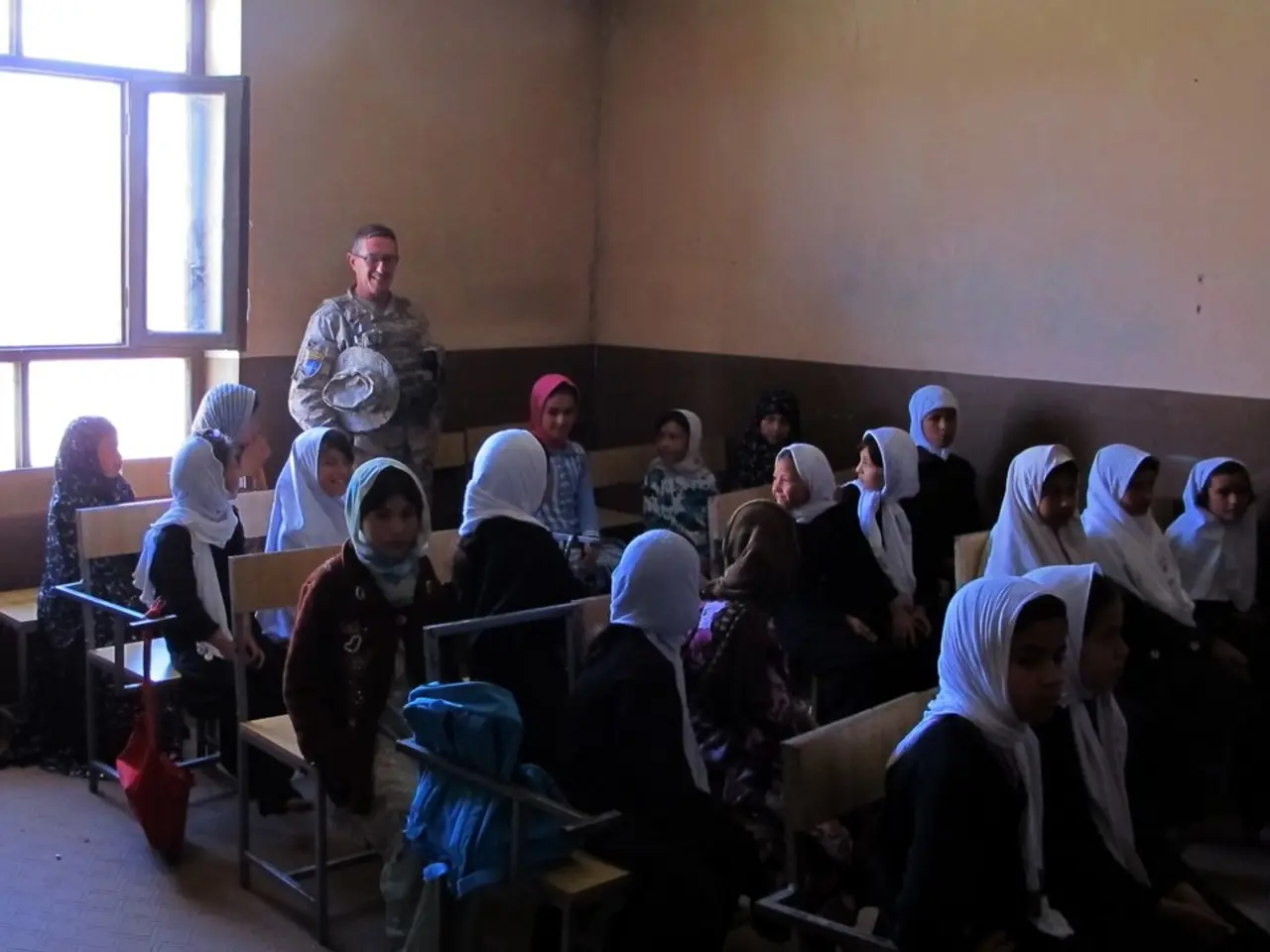School administration in VBE Solingen expresses dissatisfaction, demanding more than just technological assistance from the management.
Jens Merten, the chairman of VBE Solingen, an organisation that represents school principals in North Rhine-Westphalia (NRW), has expressed concern about the current state of the education system. In a series of conversations, Merten has highlighted the need for sustainable improvements to make the principal role more attractive and relieve the stressors that many principals face.
The current VBE NRW school leadership survey reveals that almost half of the principals would not recommend their role. Lack of time, an overwhelming workload, and insufficient personnel resources are central stressors for school principals, according to the survey. Merten has shared that he has conversations several times a week with colleagues who are considering leaving the education system.
Merten believes that using Artificial Intelligence (AI) to support school principals may be helpful but not a solution for fundamental challenges. While the Ministry of Education plans to strengthen school principals with AI and provide them with electronic mailboxes for independent proposals, Merten asserts that more than technical aids or a suggestion box is needed.
Merten comments that providing more leadership time and pedagogical staff would provide noticeable relief for school principals. Beyond AI deployment and electronic mailboxes, several specific measures for improving school conditions and making the principal role more attractive include:
- Implementing strong leadership strategies that systematically involve planning, execution, evaluation, and impact assessment to improve multiple school aspects such as curriculum, educators, facilities, and financing, aligned with national education standards.
- Prioritizing and protecting teacher collaboration time to improve teaching quality, which fosters a better school environment and supports school leadership effectiveness.
- Providing regular, meaningful, and constructive feedback to teachers, focusing on growth and positive reinforcement rather than criticism, enhancing teacher motivation and school culture.
- Cultivating a positive school culture where achievements of staff and students are recognised and celebrated, fostering mutual respect, gratitude, and morale, resulting in increased teacher retention and a healthier learning environment.
- Establishing peer coaching programs for school leaders, which create reflective support systems for principals and assistant principals. These coaching plans enhance leadership skills, facilitate effective communication with teachers, and promote collaborative problem-solving and continuous professional growth.
- Fostering a culture of continuous improvement through shared vision and goals, promoting growth mindsets, encouraging regular reflection and feedback such as professional learning communities, and recognising incremental progress to motivate staff and students alike.
- Encouraging student voices and inclusive practices to create a more engaging school environment that reflects diverse perspectives and modernises the educational experience.
These approaches emphasise leadership development, collaboration, feedback, culture-building, and continuous learning as integral measures to improve conditions and make the principalship more rewarding and sustainable, well beyond technology use alone.
Merten's comments highlight the need for addressing the issues of time, workload, and personnel resources in the education system. Attracting more people to the teaching profession and leadership positions is crucial, according to Merten. The holistic measures proposed aim to create a more attractive and sustainable environment for school principals, ensuring the continued growth and success of the education system.
Technology can complement the education system by supporting school principals, but it does not address the fundamental issues such as a lack of time, overwhelming workload, and insufficient personnel resources. To attract more individuals to education-and-self-development sectors like teaching and leadership positions, implementing holistic measures like leadership strategies, teacher collaboration time, constructive feedback, culture-building, and continuous learning are essential.




